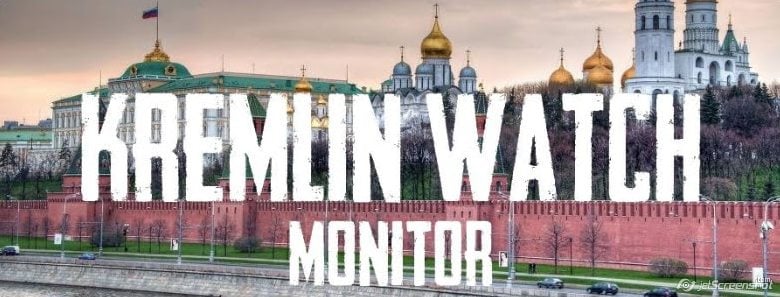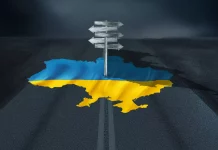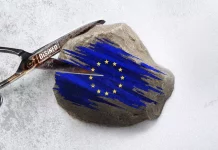
WANTED: Kremlin Watch Intern
European Values Think-Tank is looking for an intern for the Kremlin Watch Program.
SPECIFICATION:
- Team work and independent activities in the
Kremlin Watch team, which include: - Monitoring and cooperation on weekly Kremlin
Watch Monitor in English language; - Involvement in the preparation of expert
documentation within the area of disinformation
campaigns; - Participation in the preparation and realization of
the STRATCOM MiniSUMMIT.
Find out more about the opportunity on our website.
Weekly Update on the Kremlin’s Disinformation Efforts
The Kremlin is a victim and is happy to pay for it
The UN Watch, a non-governmental human rights group, challenged the UN’s Special Rapporteur Idriss Jazairy for claiming in one of his reports that the Russian Federation is a victim of human rights violations due to the “unilateral coercive measures” imposed by the United States and the EU. According to the watch-dog group, Mr. Jazairy received $50,000 from the Kremlin for writing the report.
It’s official!
The Justice Department has allegedly instructed the company that runs RT’s American branch to register as a foreign agent, signifying that RT is being officially branded as an instrument of Kremlin influence. RT announced the news on September 11, but did not name the company in question. The Foreign Agents Registration Act (FARA) is a statute from 1938, originally intended to combat Nazi propaganda, that requires Americans engaged in political work on behalf of foreign entities to disclose those relationships.
Facebook is a useful tool
Two explosive reports detail how Russian groups exploited Facebook to influence political attitudes in the US. First, Facebook representatives approached congressional investigators to testify that Facebook had discovered it had sold advertisements during the 2016 election to a shady Russian company aiming to target voters. The ad sales, about 3,000 in total and worth around $100,000, were traced to a Russian troll farm notorious for spreading pro-Kremlin propaganda. Second, The Daily Beast reported that Russian operatives using false identities created Facebook events “to remotely organize and promote political protests in the U.S., including an August 2016 anti-immigrant, anti-Muslim rally in Idaho.” These events are the first concrete indication that the Kremlin’s influence operations have moved beyond the mere propagation of fake news to the realm of stoking public action.
What can be done to make internet companies like Facebook and Google more responsible is the subject of one of our recent papers, co-authored by Jakub Janda and Klára Votavová. For a shorter read, you can also find their commentary on the Atlantic Council.
The EEAS East Stratcom Task Force has launched a new website, providing a user-friendly platform in three languages to look up disinformation cases in a searchable database, together with analysis of continuous and systematic disinformation campaigns. You can learn more about the new features in the following video:
Putin’s Champion Award
Our Expert Jury consisting of Jessikka Aro, Peter Kreko, Nerijus Maliukevičius, Anton Shekhovtsov and John Schindler, regularly votes on the dangerousness of several candidates you can nominate via e-mail or Twitter.
The 19th Putin’s Champion Award Recipient is
UN Special Rapporteur & former Algerian ambassador Idriss Jazairy
For reportedly accepting 50 000 USD for writing a manipulated report to show Russia as “victim of EU & USA human rights abuses”

The Expert Jury ranked his Putin-supportive job with
4
(out of 5) mark.
The rating signals how much the recipient contributed to the interest of the Putin’s aggressive regime. It is calculated as an average of ratings assessed by the Expert Jury of this Award.
You can find more details about the award and the former recipients here.
Kremlin Watch Reading Suggestion
A Second Look at the Steele Dossier
It has been eight months since the leak of the so-called Steele Dossier, a private intelligence report containing allegations of ties between Donald Trump and Russia. The dossier was a past topic of interest in the American media. Now, a new article by a highly respected former member of the CIA’s Senior Intelligence Service, John Sipher, offers a second intriguing look at it from an intelligence perspective.
The dossier, which was originally published by BuzzFeed, comprises a collection of reports produced by Orbis Business Intelligence, a private intelligence firm, of which the author of the dossier, Christopher Steele, is a co-founder. The reports, produced between June and December 2016, contain allegations of collusion between the Kremlin and key Trump campaign officials, as well as claims that Russians have compromising material on Trump that could be used to blackmail him. Even though the dossier’s publication triggered an uproar, the media repeatedly pointed out that the reports were “unsubstantiated”, and the topic slowly faded away. So, what news does Sipher’s article bring us?
With a 28-year career in the CIA, Sipher looks at the dossier from the perspective of someone who is familiar with the procedures that lead to the creation of such a document and is able to assess the dossier using his expertise. After a thorough examination, which takes into account events that happened after the dossier was leaked, Sipher concludes that information contained in it is generally credible. He points out, for example, that a lot of information learned in past months support the narrative that was presented in the dossier. Even though Sipher also considers certain parts of the reports to be incorrect or questionable, the core of the dossier is, in his view, now more reliable than before.
Good Old Soviet Joke
In the Soviet Union: “We have no problem with freedom of speech; however, freedom after speech still needs more work.”
Euroatlantic experts on disinformation warfare
CEPA reports on the continuous efforts of Russian-language pro-Kremlin media to persuade the population of the Baltic states that Western politicians support the Kremlin’s objectives in the region and criticise their domestic issues. Methods of misrepresentation and taking others’ words out of context are common manipulation and propaganda techniques.
The defence ministers of Sweden and Denmark co-authored an op-ed according to which they plan to cooperate more with respect to countering the threats of “hybrid warfare, including various forms of cyber attacks, disinformation and fake news, which can create uncertainty in societies” coming from the Kremlin.
Politico published an article examining the work of Ben Scott, a former technology adviser to Hillary Clinton’s unsuccessful 2016 US presidential campaign. He is now part of a group of researchers fighting digital disinformation campaigns prior to the general elections in Germany.
Kremlin Watch is a strategic program of the European Values Think-Tank, which aims to expose and confront instruments of Russian influence and disinformation operations focused against liberal-democratic system.





